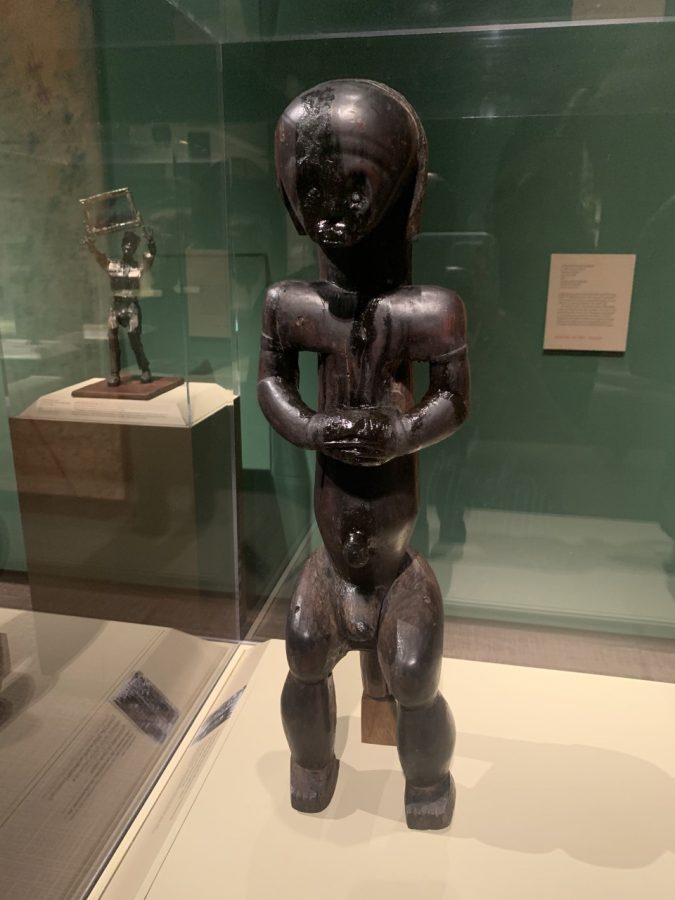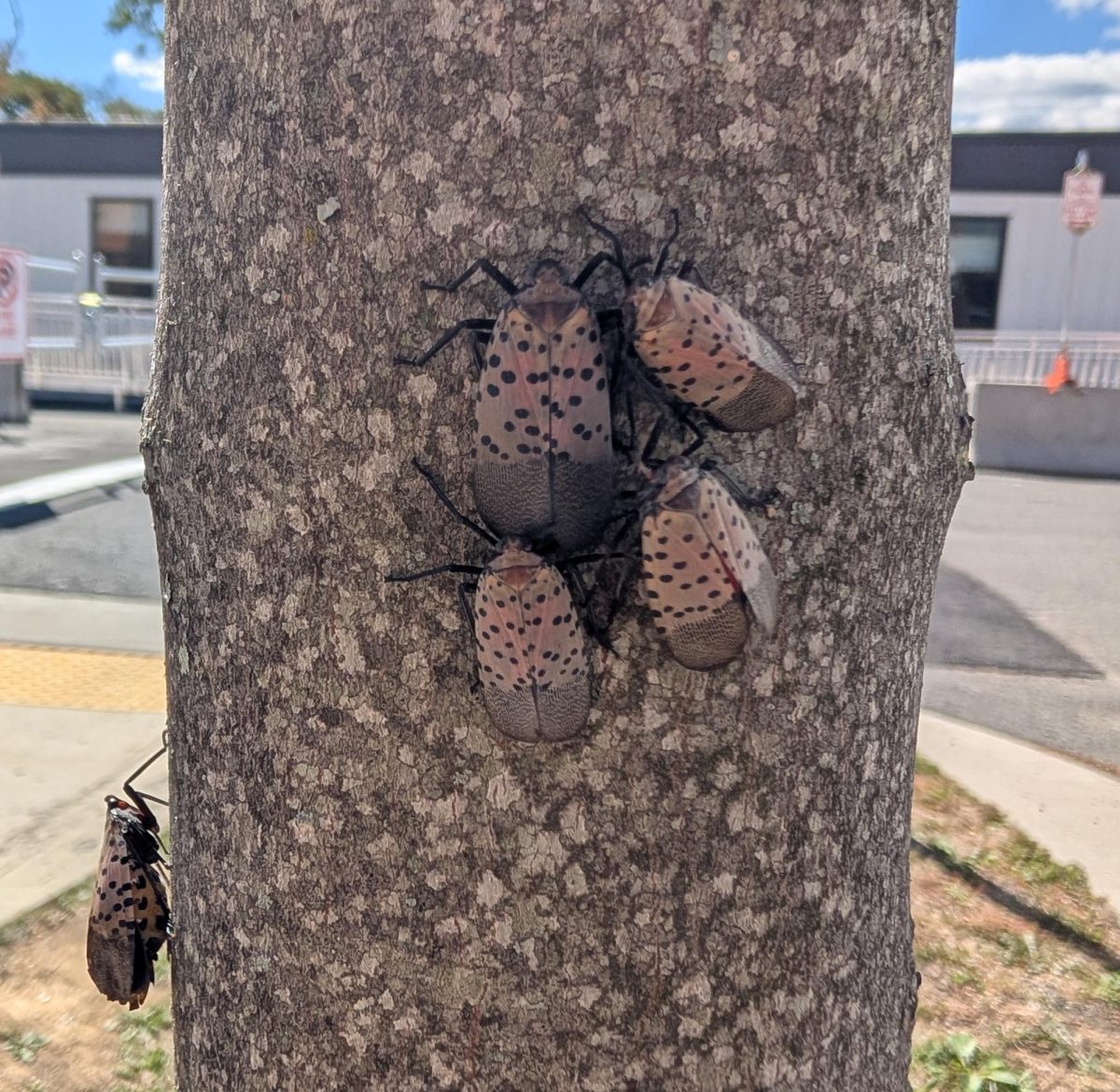The Legacy of Colonization
Equatorial Guinea, Black Africa’s sole Hispanic country, struggles with the specter of colonization
Reliquary Guardian figure crafted by the Fang people of Equatorial Guinea.
December 17, 2021
Sometime around the early 15th century, the indigenous Bubi of the Fernando Po island, located off the coast of Africa, stumbled across a group of strange men with pale white skin, uncoiled hair, and light, colored eyes. These men were the Portuguese who were well into the age of exploration. Little did the Bubi know that the arrival of these men would change the trajectory of their history and culture, and all of the history and culture of the future territories that would be known as Equatorial Guinea, for years to come. These men would also introduce them to the group of people who would forever change the Bubi way of life, the Spanish.
The Portuguese, in hopes of Spanish withdrawal from their territories in Brazil, signed the Treaty of El Pardo in 1778 which ceded the territories of Fernando Po and Annabon (territories that are included in modern-day Equatorial Guinea) to the Spanish. The Spanish saw the African islands as a source of slave labor for their colonies in South America. However, disease, native hostility, humidity, and temperature caused the Spanish to retreat from the territory for some time.
They returned in the mid 19th century, and made a second attempt at using the land. After the Treaty of Paris of 1900, Spain had established the territory which would be known as Rio Muni, the mainland of Equatorial Guinea. Unsatisfied with the way they had been treated and influenced by the other independence movements around the world, the indigenous people of Equatorial Guinea started an independence movement in 1967. Eventually, Spain suspended autonomous control and a new constitution was written for the now independent people of Equatorial Guinea.
The impact of this long history of colonization is the occurrence of a neo-culture with two conflicting identities.
Tutu Alicante, an Equatorial Guinean and a member of EG Justice, a human rights group focused on the rights of the indigenous people of his country, says that this conflict of identity continues today.
“Because of the history of Spain in my country,” says Alicante, “I do identify some as Hispanic. So for instance, whenever there is Hispanic month in my children’s school I have two kids we tend to participate because there are strong cultural elements including the language they identify us as Hispanic”
For Alicante and others like him it is an uneasy accommodation.
Because of Spanish colonization, a syncretism of Spanish and indigenous culture occurred in Equatorial Guinea. While the indigenous people of Equatorial Guinea held on to their beliefs, Spanish influence also infiltrated their culture causing a new lifestyle to take place, one that was both African and Hispanic, a combination that had been rarely seen on the continent.
But two different cultures and beliefs can cause conflicting issues of dominance between them. Equatorial Guinean intellectual Balboa Boneke claims that Spain had turned Equatorial Guinea into “ A man without a personality,” implying that Spain had taken away their culture which had made them unique and instead has placed them into some sort of limbo between their indigenous beliefs and Spanish culture.
Alicante, however, believes that African culture dominates over Hispanics. When asked if the people of Equatorial Guinea feel as if they belong to the Hispanic community, Alicante says “In some aspects yes in some aspects no overall most people are strongly rooted to the African traditions”
Prejudice can also lead to conflict between cultures. For example, the Spanish belief that they had civilized instead of colonized put Spanish culture on a pedestal which led to the degradation of the other culture which can be seen in the preference of the Roman Catholic religion over the indigenous religions of Equatorial Guinea.
Under Spanish rule, the Equatorial Guineans were discriminated against based on their race and were subjected to minority rule over the indigenous population. Independence from the Spanish, however, did not lead to the end of their problems. Colonization had planted the seeds for corruption as it had many times been a tool for colonial rule. With the discovery of oil Equatorial Guinea became one of the richest countries in Africa, but at the same time, around 50 percent of Equatorial Guineans live in poverty. Human rights abuses are rife in the country and the authoritarian Government does nothing but encourage these behaviors.
However, not all hope is lost. There are many human rights organizations in the country like Alicante’s group EG Justice.
“Someone that is mistreated, whose rights are being violated, we want to be there to document that and we want to be there to represent them if they need representation, “ explains Alicante. “We want to take their cases to the international floor”
These human rights organizations are Equatorial Guinean intellectuals who write to educate others about the human rights abuses that occur in their country. And who want to join in solidarity with other nations who have suffered under colonization.
“One thing that I want to carry forward, says Alicante, “is the possibility of joining forces with people in other Hispanic countries around the world- Latin America and Philippines and everywhere that Spain invaded and conquered to see how do we begin to reclaim our own traditions and history.”
As for the future of Equatorial Guinea, Alicante hopes for change. ”My hope is that Equatorial Guinea will become a democratic country soon. We have had now 42 years of dictatorships, the same people in power for 40 years. That one thing I am hoping is that things change soon”




